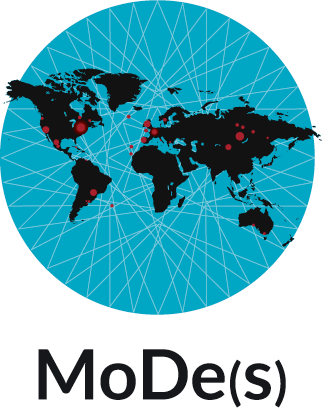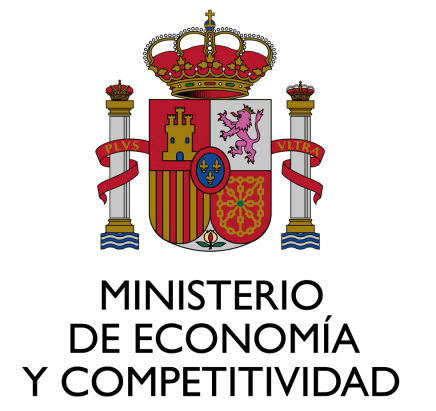Aula Magna, Facultad de Geografía e Historia, Universidad de Barcelona
Auditorio, Museu d’Art Contemporani de Barcelona, MACBA
28 & 29 April, 2016
The International Conference Global Art Challenges: Towards an “Ecology of Knowledges” aims to reformulate established approaches to the study of global art in the face of ongoing challenges in that field. Building on sociologist Boaventura de Sousa Santo’s concept of an “ecology of knowledges” (2007), the conference seeks to go beyond “abyssal thinking in modern Western-based conceptions” of art and to trace lines of inquiry into new epistemological approaches to global art studies. As theorized by de Sousa Santos, ecological thinking, understood as a counter-epistemology, recognizes the plurality of heterogeneous knowledge(s) and highlights the dynamic interconnections that exist between them.[1] Hence, faced with a longstanding monocultural conception of knowledge and art an “ecology of knowledges” conceives of knowledge-as-intervention-in-reality rather than a hierarchical preference of Western knowledge(s) over other forms of knowing.
This approach proposes an emancipatory attempt to supersede predominant epistemological frameworks that continue to reproduce the power structures that have dominated Western thinking since the Renaissance.[2] Despite the spatial turn of global studies, longstanding monocultural (Western) conceptions of knowledge and art continue to impact and shape the study of global art, as well as its theorization and the validation of artistic practices around the world. An “ecology of knowledges”, as suggested by de Sousa Santos, is a useful concept to counteract this perspective. It recognises the plurality of artistic knowledge(s) and its socio-political agency in modern and contemporary global art. This concept grapples with the current debates surrounding the need to reassess global art study’s methodological tools, calling for the importance of a transcultural and horizontal art history that puts the accent on transnational transfers, cultural encounters, circulatory and transformation processes.[3]
This conference seeks to discuss, from a methodological, epistemological and practical perspective, the possibilities of developing an “ecology of knowledges” in art history, regarding also artistic and institutional practices. It looks for ways to overcome Western hierarchies and enter into a proactive dialogue between practices, methods and discourses. Such perspectives, we hope, will contribute to questioning taxonomies, values, temporalities, and dichotomies that have not just been a part of the art historic discipline since its foundation, but that have been imposed as universal and taken-for-granted. Finally, the conference seeks to become a platform for debating the possibilities of breaking that (Western-dominated) view within art history, seeking a starting point for a change of paradigm in the understanding of global art.
[1] Sousa Santos, Boaventura de, “Beyond abyssal thinking. From global lines to ecology of knowledges”, Eurozine, 2007, p. 66 (disponible online en: http://www.eurozine.com/articles/2007-06-29-santos-en.html)
[2] Mignolo, Walter, The Darker Side of the Renaissance: Literacy, Territoriality and Colonization, Ann Arbor: University of Michigan Press, 1995.
[3] Juneja, Monica, “Global Art History and the Burden of representation”, in: Belting, Hans / Birken, Jakob / Buddensieg, Andrea (eds.), Global Studies: Mapping Contemporary Art and Culture, Stuttgart: Hatje Cantz, 2011, pp. 274-297; Piotrowski, Piotr, “Du tournant spatial ou une histoire horizontale de l´art”, in Quiros, Kantuta / Imhoff, Aliocha (eds.), Géo-esthétique, Paris: Éditions b-42, 2014, pp. 123-131.
The conference will be organized around four panels:
Critical Perspectives in Global Art History
Keynote Speaker: Monica Juneja (Universität Heidelberg, Germany)
Convenor: Anna Maria Guasch (Universidad de Barcelona, Spain)
This session aims to question and to reformulate established approaches to the methodological study of global art history in the light of on-going debates in the field. Such an undertaking seems especially relevant when considering that the spatial turn has often led to an extension of existing approaches and to a perpetuation of conceptual imperialism historically embedded in Western art history. Guiding questions of the session are: How can we gain a global and integrative perspective and avoid the dangers of reproducing similar asymmetries between artistic productions around the globe? What are the tools that allow us to highlight multiple locations, temporalities and processes of transcultural configurations? In how far can an ecological perspective enrich and articulate our view on global art history?
‘Close Others’ in ‘The West’
Keynote Speaker: Klara Kemp-Welch (The Courtauld Institute of Art, London, UK)
Convenor: Paula Barreiro López (Universidad de Barcelona, Spain)
This session addresses the need to continue decentering cultural and aesthetic paradigms regarding the Cold War era. Despite significant academic projects such as Former-West, the idea of ‘the West’ is still usually taken as shorthand for Western Europe and North America. The concept of the West therefore remains limited to an established series of hegemonic centres, irrespective of the transformations of the global cultural and political field since 1989. This panel explores the relationship of the former hegemonic centres of the West to their ‘close-Others’ in Europe and the Americas (Southern and Eastern European; Central and Southern American), and vice-versa. The aim is to rethink the conception of the West itself from a range of dialogical and dialectical perspectives and to thereby destabilise the concept internally. We propose to treat the West as a pluri-cultural and polycentric matrix, defined by the encounters and exchanges of multiple cultures. In addition to challenging centre-periphery dichotomies, this session seeks to bring to light the transcultural and multivalent processes that the development of modernity and postmodernity has entailed. We are especially interested in assessing the subaltern potentialities of artistic practices and knowledge developed outside normative spheres. Guiding questions of the sessions are: How do the perspectives on race, gender and ideology that have emerged in different parts of Europe and the Americas vary? What might these variations contribute to the wider project of ‘provincialising the West’?
Visualizing Global Networks
Keynote Speaker: Béatrice Joyeux-Prunel (École Normale Supérieur, France)
Convenor: Nasheli Jiménez del Val (Instituto de Investigaciones Estéticas-UNAM, Mexico)
This session aims to outline the possibilities of mapping the diverse artistic and intellectual networks of cultural transfer and their close intertwining with the social, political and economic spheres. Globalisation is, in this context, understood as a process that starts well before the fall of the Berlin Wall. Its roots can be traced back to a long history of global exchanges and increasing social mobility, which relate to the economic and political as well as to the cultural fields. Guiding questions are: How can we visualise transnational patterns and which are key characteristics of today’s global experiences, such as circulations, exchanges and networks? How can such a multi-level conception with various players and agencies challenge binary models that still shape the discipline where culture is seen to flow from metropolitan centres of the Western world to the peripheries? In which way(s) can the visualization of global networks reveal the complexity of artistic creation by bringing to surface the multiplicity of practices and “knowledges” that configured the cultural world?
Art-as-Intervention-in-Reality. Ecology of Knowledges and Institutional Practices
Keynote Speaker: Maria Hlavajova (Basis Voor Akuele Kunst, Utrecht)
Convenor: Christian Alonso (Universidad de Barcelona)
This panel aims to think about—and through—artistic practice in the present moment, understood by Zygmunt Bauman as the “condition in which rulers no longer can rule and the ruled no longer wish to be ruled”.[1] Within this context, it becomes paramount to reconsider and rearticulate foundational Western epistemological categories such as progress, criticism, nature-culture relations, and the very notions of the nation-state, the museum, and the institution of art. For these reasons, the panel suggests a discussion of case studies that propose new avenues for redirecting institutional artistic activities towards practical applications of an “ecology of knowledges” on an experimental and discursive terrain. Considering that an “ecology of knowledges” conceives of knowledge as intervention-in-reality, what role can the plural integration of artistic practices as knowledge producers, as well as their corresponding political agencies, play in the reconfiguration of the institution of art today?
 Multimedia
Multimedia
More information: http://globalartchallenge.wix.com/gac2016
This conference is funded within the framework Grupo Consolidado Agència d’Ajuts Universitaris de la Generalitat de Catalunya (2014- SGR1050) and the research project Cartografía crítica del arte y la visualidad en la era de lo global: Nuevas metodologías, conceptos y enfoques analíticos II Parte (HAR2013 43122P), Ministerio de Economía y Competitividad (MINECO, Madrid). http://artglobalizationinterculturality.com
Additional support has been provided by the I+D research project Modernidad(es) Descentralizada(s): Arte, política y contracultura en el eje transatlántico durante la Guerra Fría (HAR2014-53834-P), Ministerio de Economía y Competitividad (MINECO, Madrid). https://modernidadesdescentralizadas.com_languages/en/
And the Instituto de Investigaciones Estéticas, Universidad Nacional Autónoma de México (UNAM). http://www.esteticas.unam.mx/







